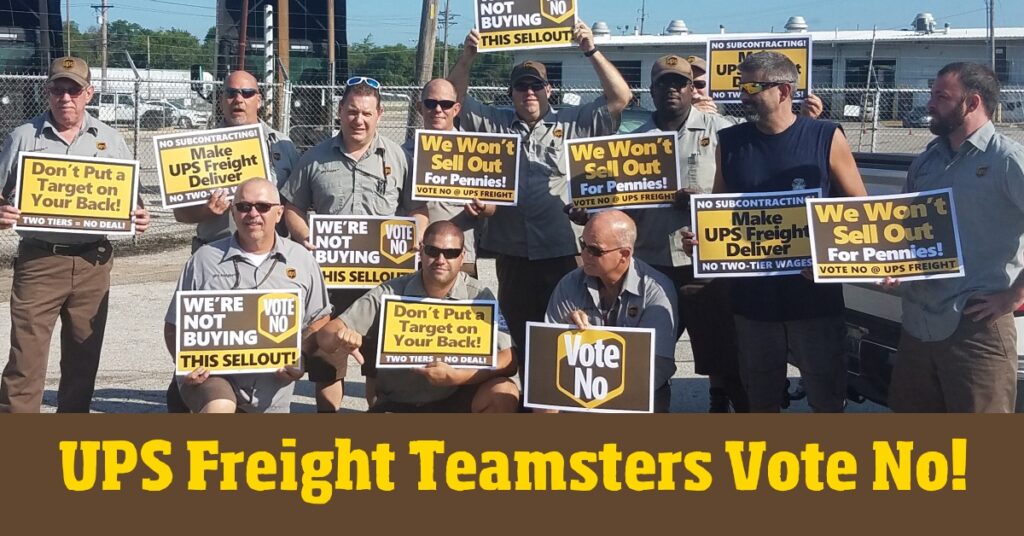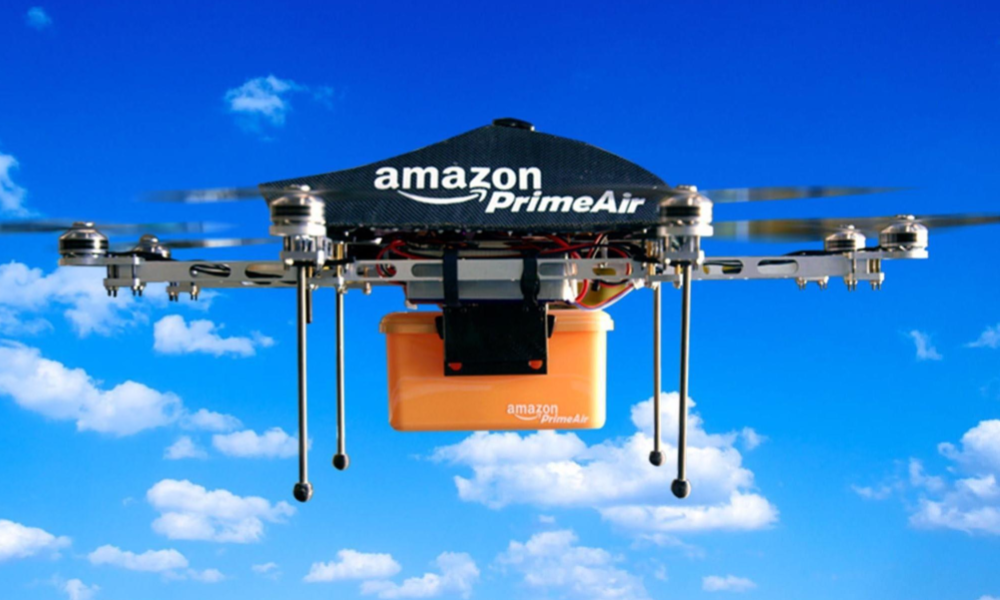Where is UPS going?

When United Parcel Service (UPS) announced on January 25 that it was selling its freight division to the Montreal-based TFI International Inc., it hit like a bombshell. The sale represents a major shakeup of the freight industry, and it is the first major strategic decision by new UPS CEO Carol Tomé. It is also part of ongoing restructuring of UPS, the largest unionized private-sector employer in the United States, and it therefore warrants close attention.
The International Brotherhood of Teamsters (IBT), the union representing 15,000 drivers and dockworkers at UPS Freight, appeared to be as surprised as anyone by the announcement. Teamsters freight coordinator, Kris Taylor, posted:
Early yesterday morning, January 25, UPS made the IBT aware of its sale of UPS Freight to TFI International. TFI is a corporation based in Canada, and some Teamster local unions in the U.S. and Canada have agreements with them.
In a follow-up letter to union locals that represent UPS Freight workers across the country, Kris Taylor and Teamsters Package Division Director Denis Taylor tried to reassure local officers that nothing had really changed. The letter ended with, “Should you have any questions, please feel free to contact the Package Division.”
Despite such reassurances, a shakeup in the ownership of a major Teamsters employer warrants greater concern, and it should send an ominous signal to the rank and file of the union. Yet, the Teamsters act as if they are little more than bystanders.
Every “competitive” restructuring of UPS in past decades has come at the cost of UPS workers. Whether in the service of challenging the U.S. Postal Service in the 1970s, or the FedEx Corporation in the 1980s and 1990s, prior restructuring cycles have eliminated full-time jobs and introduced two-tier wages. UPS workers paid the price while corporate profits soared.
In this case, TFI International will rebrand UPS Freight as TForce Freight and it will be the largest—and only—U.S. based subsidiary of the company. Yet, overnight TFI International will be the fifth-largest less-than-truckload (LTL) carrier in North America, despite having no U.S. management team in a highly competitive national market.
While TFI International CEO Alain Bedard has said that he has no problem with the Teamsters, the LTL market is dominated by non-union corporations such as FedEx Freight, XPO Logistics, and Old Dominion Freight Line. Other Teamster LTL employers like YRC Freight have been in trouble for years and face an uncertain future. One symptom is a rebranding whereby YRC recently reverted back to using its old name Yellow.
The freight industry was once the stronghold of the Teamsters, now it barely has a ghost presence in the sector. The union failed to make any significant inroads in the freight industry that emerged following the deregulation of the industry; non-union companies like XPO and FedEx are symbols of this.
The Teamsters will hold up UPS Freight as a major success story in the sector, under the leadership of retiring General President James P. Hoffa, Jr. But supposed success was won at an extraordinarily high cost. Soon after taking office, Hoffa called a nationwide strike against the notorious anti-union Overnite Transportation Company. The strike was still-born, but it dragged on for three years before the Teamsters called it off. UPS then bought Overnite in 2005 for $1.25 billion and rebranded it as UPS Freight.
Following the purchase of Overnight, UPS was presented with the deal of the century. The Teamsters allowed UPS to divest from the Central States Pension Fund (CSPF)—the largest Teamsters pension fund and notorious for being a Mafia piggy bank—in exchange for granting card check recognition at UPS Freight.

The deal was a major contributing factor to the on-going financial troubles of the CSPF and it produced a substandard initial contract at UPS Freight. In a sign of the continuing resonance of that poor deal, the Teamster rank and file voted down the proposed successor contract put forward and recommended by union negotiators in 2018.
UPS is not a company known for making either rash or losing business decisions. Nonetheless, it took a surprisingly big hit on the fire sale of UPS Freight to TFI International, selling the company for a 30 percent discount on the price it paid in 2005. Yet despite shedding its freight division, UPS remains the largest package delivery company in the world. For many decades, along with FedEx, it was the trendsetter in the industry. It is also still the largest unionized private-sector employer in the U.S., with 260,000 represented employees.
Through sale of its freight division, UPS is obviously attempting to restructure its operations in a more highly competitive environment. Such restructuring efforts led to the concessions UPS secured from the Teamsters in 2018. Most importantly, these concessions included the creation of a new, substandard category for full-time package delivery drivers, and the use of personal vehicles for package delivery, or the “uberization” of UPS jobs.
UPS restructuring efforts are now led by Carol Tomé, who became CEO last year. She ordered a strategic review of operations soon after taking leadership. She is the first woman and non-UPS career employee to lead the company, though she has been a member of the board of directors since 2003. Notably, the bulk of her executive management career was at Home Depot, the non-union home supply retailer.
UPS Freight is the first casualty of the “better not bigger” strategy. Tomé explained:
We’re excited about the future and the opportunities this creates for both UPS and UPS Freight as part of TFI International Inc. … The agreement allows UPS to be even more laser-focused on the core parts of our business that drive the greatest value for our customers.
UPS Freight Is largely a business-to-business operation with a heavy industrial and manufacturing focus. It does not fit with the new strategic emphasis on home delivery. “As more and more parcels go B2C [business-to-consumer], the bundling with freight and parcel is less relevant,” Satish Jindel, president of research firm SJ Consulting Group Inc., said to the Wall Street Journal.
For nearly three decades, the package delivery industry was dominated by the Big Three: The U.S. Post Office, FedEx, and UPS. No longer. Amazon is now the trendsetter and it has an enormous advantage over its competitors as a retailer and a delivery company. An Amazon building spree, and its construction of so-called fulfillment centers across the country, has been breathtaking. Today, the Amazon workforce in the U.S. exceeds 500,000 employees, nearly triple the number from 2016, as well as a massive fleet of delivery vans working seven days a week.

Yet, Amazon remains the largest UPS customer. The tensions and contradictions of Amazon being both the biggest competitor with UPS in package delivery, and its biggest customer, have not yet matured, let alone been resolved.
So is UPS in crisis? Hardly. Like Amazon, UPS had record profits of nearly $7.8 billion last year spurred by a huge shift to online shopping produced by the COVID-19 pandemic. With large sections of the population either house-bound or struggling with limited aility to travel for groceries, household supplies, and clothing, the home delivery giants have all enjoyed a masive boom. Nonetheless, the sale of UPS Freight, and the changes in the logistics industry as a whole, present major challenges for the Teamsters.
2021 is the first Teamster election this century where James P. Hoffa will not be on the ballot and the future of the union is very much at stake. How Hoffa’s successor will address the challenges presented by a changing UPS will be on the agenda and it will shape the future of the Teamsters for years to come.
Categories
We want to hear what you think. Contact us at editors@tempestmag.org. And if you've enjoyed what you've read, please consider donating to support our work:
DonateJoe Allen View All
Joe Allen is a long-time labor activist and writer. His latest book is The Package King: A Rank and File History of UPS.
